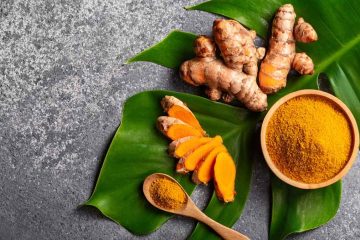If you read or listen to advice relating to your health, and in particular the nutrients you need to remain healthy, you will surely have come across some information about vitamins. Vitamins play a crucial role in our development as children and our general health as adults. The body needs them. The mind needs them, and other important functions such as the immune system, metabolism, nerve impulses and oxygen flow around the body all need them.
It would probably be easier to list the body functions that do not rely upon vitamins than those that do. This should alert you to the fact that almost everything that contributes to your health and well-being relies upon vitamins to some degree. Beyond that, there are several facts about vitamins that many people are unaware of. They know vitamins are good for them, but beyond that, their knowledge of vitamins is lacking, so let us resolve that.
In all, there are a total of 13 vitamins that humans need to survive. These are Vitamins A, B1, B2, B3, B5, B6, B7, B9, B12, C, D, E, and K. Each of them has a chemical name (in brackets), specific functions within our bodies and various sources as outlined below.
- Vitamin A (Retinol) is mainly responsible for the health of our eyes. Sources include cod liver oil, broccoli, carrots, spinach, and sweet potato.
- Vitamin B1 (Thiamine) creates enzymes that help control our blood sugar levels. Sources are brown rice, sunflower seeds, cereal grains, and pork.
- Vitamin B2 (Riboflavin) helps to metabolise our food and is essential for enabling our cells to grow and develop. This vitamin can be found in eggs, fish, cheese, milk, okra, and green beans
- Vitamin B3 (Niacin) is another vitamin that supports the healthy growth of our cells. The top sources are chicken, beef, tuna, tomatoes, carrots, and nuts.
- Vitamin B5 (Pantothenic Acid) is a vitamin that helps us to produce energy, and it also supports the growth of our hormones. Found in whole grains, broccoli, avocado, meats, and yogurts.
- Vitamin B6 (Pyridoxine) is essential for the production of our red blood cells. Sources are bananas, nuts, beef liver and chickpeas.
- Vitamin B7 (Biotin) allows the body to metabolize fats, proteins, and carbohydrates. It also supports the production of a protein called keratin which is required for the health of our hair, nails, and skin. Liver, spinach, broccoli, cheese, and egg yolk are its top sources.
- Vitamin B9 (Folic Acid) is vital for our DNA and RNA. Found in sunflower seeds, peas, leafy vegetables, legumes, and liver.
- Vitamin B12 (Cyanocobalamin) is what keeps our nervous system healthy. Shellfish, poultry, eggs, and milk are its top sources.
- Vitamin C (Ascorbic Acid) can be found in most fresh fruit and vegetables and has several functions, which include:
- Bone formation
- Healing of wounds
- Production of collagen
- Supporting the immune system
- Absorption by the body of iron
- Is an antioxidant
- Strengthening blood vessels
- Vitamin D (Ergocalciferol) is crucial for healthy bone mineralisation. Apart from UV rays from sunlight, other sources are mushrooms, beef liver, eggs and fatty fish.
- Vitamin E (Tocopherol) has antioxidant qualities which help prevent the spread of infections and disease within our bodies. Wheatgerm, almonds, nuts, eggs, and leafy greens are all great sources.
- Vitamin K (Phylloquinone) is vital for blood clotting and thus prevents us from bleeding excessively if we have a cut or wound. The main sources are leafy greens, pumpkins, figs, and parsley.


